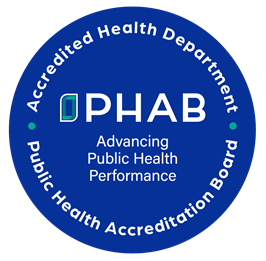Free Confidential HIV Testing
What is HIV? What is AIDS?
HIV (Human Immunodeficiency Virus) is a virus. You may hear that someone is HIV infected, has HIV infection, or has HIV disease. These are all terms that mean the person has HIV in his or her body and can pass the virus to other people.
HIV attacks the body's immune system. The immune system protect the body from infections and disease, but has no clear way to protect it from HIV. Without treatment, most people infected with HIV become less able to fight off the germs that we are exposed to every day. Many of these germs do not usually make a healthy person sick, but they can cause life-threatening infections and cancers in a person whose immune systems has been weakened by HIV. HIV treatments can slow this process and allow people with HIV to live longer, healthier lives.
People infected with HIV may have no symptoms for ten or more years. They may not know they are infected. An HIV test is the only way to find out if you have HIV.
AIDS (Acquired Immune Deficiency Syndrome) is a late stage of HIV disease. According to the Centers for Disease Control and Prevention (CDC), a person with HIV infection has AIDS when he or she:
- has a CD4 cell count (a way to measure the strength of the immune system) that falls below 200. A normal CD4 cell count is 500 or higher. OR
- develops any of the specific, serious conditions - also called AIDS-defining illnesses - that are linked with HIV infection.
Everyone should know his or her HIV status. An HIV test should be a part of a regular medical check up. It is especially important for women who are pregnant or considering pregnancy to be tested. In addition, individuals who are at a greater risk for HIV and who need to be tested are those who:
- have had unproteced anal, oral or vaginal sex;
- have shared needles, syringes, or works used to inject drugs, steroids, hormones, vitamins, insulin, or other substances;
- have ever had a sexually transmitted disease (chlamydia, syphilis, gonorrhea, herpes, genital warts);
- have had many sex partners;
- received blood or blood products before 1985 (the year in which the U.S. began screening donated blood for HIV);
- work in health care or other occupations where they may be exposed to HIV on the job; or
- are victims of sexual assault
Should I wait for symptoms to appear before getting tested?
No. If you think that you may have been exposed to HIV, you should get tested as soon as possible. You may have HIV and have no symptoms for many years. The sooner that HIV is detected, the sooner medical care can begin, which helps people with HIV stay healthier and live longer. In most cases, the immune system will stay healthier for a longer period of time if treatment starts before a person has symptoms.
How soon after exposure can HIV infection be detected?
With the HIV antibody tests used in New York State, virtually all people who are infected will test positive within one month of being infected. Most people will test positive even sooner.
The period between the time of infection and the time that a HIV antibody test can detect the infection is called the window period. During the window period, an infected person does have HIV and can pass HIV to other people, even if his or her HIV antibody test is negative.
So, if you HIV antibody test is negative, you can be sure that you do not have HIV only if you have not engaged in any HIV risk behaviors (such as having unprotected sex or sharing needles) during the past three months.
How will I be tested for HIV?
Please read about the HIV test that we use.
What do you know about HIV and AIDS?
http://www.health.state.ny.us/diseases/aids/publications/respect_yourself/en/index.htm


